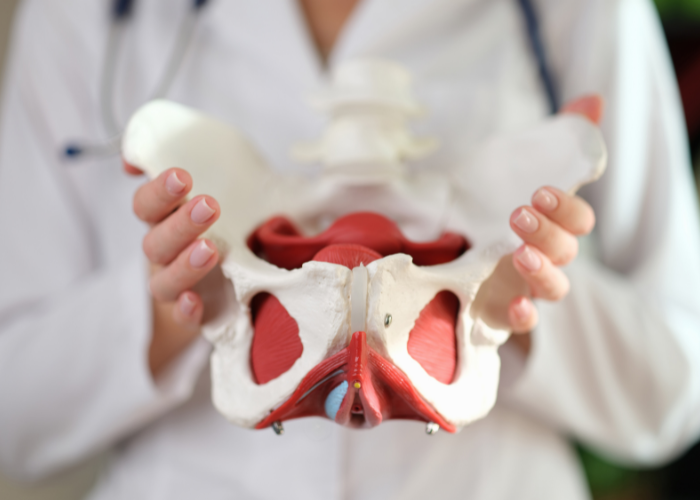Osteoarthritis of the Hip: Symptoms, Causes, and Treatment Options
Osteoarthritis is one of the most prevalent forms of arthritis. It is a progressive and degenerative disease that can affect the different joints in the body, including the hips.
According to studies, there has been an increasing trend in the prevalence rate of hip osteoarthritis from the 1990s to 2019. Currently, it is estimated to affect approximately 300 million people globally.
Fortunately, being diagnosed with osteoarthritis is not the end of the world. Various techniques are now used to prevent, treat, and manage its symptoms so patients can continue their daily acitivites. Head on below to learn more about your treatment options.
What is hip osteoarthritis?
The hips are made up of a ball and socket joint formed by the fusion of the acetabulum (socket) and femoral head (upper part of the thighbone). An articular cartilage separates these two structures and acts as a smooth protective coating to facilitate movement without much friction.
So when the cartilage gets damaged, there won't be anything to separate the acetabulum from the femoral head. As a result, the bones will eventually rub against each other upon movement, causing pain, discomfort, and bone destruction. This condition is known as osteoarthritis.
Osteoarthritis can cause gradual damage to the hip joints, which may be categorized into four stages:
Stage 1
mild wear and tear in the articular cartilage causing little to no pain.
Stage 2
cartilage begins to fray away. Mild bone spur growth may be observed.
Stage 3
the space between the hip joints becomes narrower as the cartilage starts to erode. Normal activities will begin to cause moderate pain and discomfort.
Stage 4
severe wear and tear can be observed. Moderate bone spurs are present as the bones start to grind against each other.
What are the signs and symptoms of hip osteoarthritis?
Hip pain is the most common symptom of hip osteoarthritis. Patients typically experience mild pain, which may worsen with activity or movement. This pain may also radiate to the groin, thigh, buttocks, and knees. Some other symptoms include:
Joint stiffness
Tenderness and swelling
Weakness
Limited range of motion and decreased flexibility
Grating or locking sensations
Grinding noise or crepitus
Mobility problems
Over time, bone spurs may start to develop, which may feel like hard lumps in or near the affected joint. Bone spurs or osteophytes usually form near the damaged joint as the body tries to compensate for the loss of cartilage in the area.
What causes hip osteoarthritis?
Osteoarthritis in the hips has no definite cause. However, there are a lot of factors that can contribute to hip joint degeneration, such as:
Older age
Prior or recurring hip joint injury
Overuse or repeated stress on the hip joints
Obesity or overweight
Congenital bone deformities
Secondary to metabolic diseases, such as diabetes.
How to treat osteoarthritis of the hip?
Orthopedic specialists diagnose hip osteoarthritis using imaging tests, such as X-rays and MRIs. An X-ray can show cartilage loss and bone spur growth, while an MRI can show the severity and extent of damage by providing a clear view of other hip structures.
Your doctor will also perform a physical examination and medical history review to correlate with the imaging results.
Joint damage caused by osteoarthritis is not reversible. So, treatment options focus more on improving one's hip function, mobility, and overall quality of life. The type of treatment you'll receive will depend on the severity of your condition. It can either be non-surgical, surgical or a bit of both.
Nonsurgical treatment
Generally, doctors manage or control the symptoms of mild hip osteoarthritis using a combination of conservative methods, such as:
Medications, such as acetaminophen, NSAIDs, and corticosteroids
Cortisone injection, such as corticosteroid
Lubricating injections, such as hyaluronic acid
Physical therapy
Assistive devices
Lifestyle modification involves limiting or forgoing activities that can worsen your joint problems.
Surgery
Physicians will recommend surgery for severe hip osteoarthritis and for conditions that did not improve with non-surgical techniques. Surgical methods used to treat hip osteoarthritis include:
Hip replacement or hip arthroplasty
-this involves cutting away the damaged bone and cartilage and then replacing them with artificial joints. Your doctor may either perform a partial arthroplasty (replacing only the femoral head) or total arthroplasty (both ball and socket are replaced).
Hip resurfacing
-this involves the removal of the damaged structures in the acetabulum and then replacing it with a metal shell. The femoral head will be capped with a metal covering as well.
Osteotomy
-in some cases, an osteotomy may be performed to relieve pain and discomfort. This procedure involves cutting the damaged bone on the acetabulum or femoral head. This will help reshape or realign the bones and shift away the weight-bearing function to the undamaged joint part.

Where to find orthopedic sports medicine near me?
Pinnacle Orthopaedics has a full-service orthopedic clinic specializing in various practicesä¸from sports medicine to spine surgery. Our esteemed physicians provide the highest quality of patient care and orthopedic services to give patients maximum independence and mobility.
So if you or a loved one requires hip arthroscopy surgery or other treatment, then our hip doctor is more than happy to help. You can contact us at 770-427-5717 or visit one of our five convenient locations near you:
The material contained on this site is for informational purposes only and DOES NOT CONSTITUTE THE PROVIDING OF MEDICAL ADVICE, and is not intended to be a substitute for independent professional medical judgment, advice, diagnosis, or treatment. Always seek the advice of your physician or other qualified healthcare providers with any questions or concerns you may have regarding your health.
